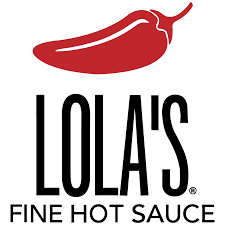Iowa Supreme Court upholds district court ruling in fired employees’ challenge to Casey’s drug testing policy

JOE GARDYASZ Jun 25, 2021 | 7:44 pm
4 min read time
866 wordsAll Latest News, Education, Government Policy and LawThe Iowa Supreme Court today issued a ruling that found Casey’s General Stores Inc. — for the most part — properly handled its amended policy for conducting unannounced random drug testing of its employees in 2016.
Four Casey’s warehouse employees who were fired by the Ankeny-based convenience store operator had sued their former employer after three failed a random drug test and a fourth was terminated for failing to comply with the testing policy.
Both Casey’s and the former employees sought further review of the court of appeals decision that followed a bench trial, which said there were numerous violations by Casey’s of the state’s workplace drug-testing statute. Today’s opinion from the Iowa Supreme Court vacates the court of appeals decision and affirms the district court’s judgment.
In a 4-3 opinion, Justice Dana Oxley wrote in delivering the opinion for the court: “This case raises significant issues under Iowa’s private employer drug-testing statute, including when an employer is entitled to immunity, what it takes to comply with the statutory requirements, the meaning of ‘safety-sensitive positions,’ and the process for selecting employees for testing, among others.”
In early 2016, Casey’s amended its drug and alcohol testing policy to add unannounced random testing of employees in a pool of safety-sensitive positions to its current policy. The district court found Casey’s implemented the suspicionless drug-testing program based, at least in part, on concerns of suspected widespread drug use among warehouse employees.
Before 1998, private employers were statutorily precluded from testing employees without a sufficient reason for doing so. The Iowa Legislature revamped its drug-testing statute to allow suspicionless drug testing, putting in place specific requirements for carrying out an unannounced testing program. Private employers who choose to engage in workplace drug testing must comply with the detailed and comprehensive statutory scheme or face civil liability.
The plaintiffs in the case — Julie Eller, Jimmy McCann, Jason Cattell and Tyler Dix — were
employed by Casey’s Marketing Co. and Casey’s General Stores (collectively “Casey’s”) in its Ankeny headquarters distribution warehouse. Eller and McCann had each suffered workplace injuries resulting in medical restrictions, so they worked on light duty, sorting cigarette returns. Employees assigned to light duty worked within “the cage,” a chain-link structure that surrounded them on all sides within the warehouse area of the facility. Dix and Cattell worked on heavy duty, operating forklifts and lifting heavy objects.
The four employees were among 184 employees who were scheduled to work on April 6, 2016, the day that random testing was conducted on 90% of those employees. Dix tested positive for marijuana; Cattell and McCann each tested positive for marijuana and amphetamines. All three employees were subsequently fired. Eller attempted twice to provide a urine sample but was unable to produce a large enough sample and left at the end of her shift. Under Casey’s policy, Eller’s departure constituted a refusal to take the test, and she was deemed to have voluntarily resigned.
The district court found Casey’s complied with the statute except for three specific violations:
1.Two of the employees (Eller and McCann) should not have been included in the pool of employees subject to testing because they did not hold “safety-sensitive positions.”
2. Casey’s failed to provide employees an opportunity to present information relevant to the drug test.
3. Casey’s failed to provide the list of drugs to be tested on the day of the test.
The court found Eller and McCann were fired as a result of Casey’s statutory violation and awarded them damages, rejecting Casey’s argument they each failed to mitigate damages. The court denied all of Cattell’s and Dix’s claims for relief because the founded violations did not cause their terminations.
Casey’s appealed the district court’s order regarding Eller and McCann, and Cattell and Dix cross-appealed the district court’s denial of relief. The Iowa Court of Appeals upheld the district court’s ultimate ruling. Casey’s, Dix, and Cattell sought further review of the case by the Iowa Supreme Court.
In the Supreme Court opinion, which Justices Brent Appel, Thomas Waterman and Edward Mansfield joined, Oxley wrote: “We affirm the district court’s conclusion that two employees were improperly classified as engaged in safety-sensitive positions, so they should never have been tested and were entitled to the relief the court granted. The other two employees were not aggrieved by Casey’s actions in attempting to comply with the statutory requirements, so we also affirm the district court’s judgment as to those employees.”
Justice Matthew McDermott filed an opinion concurring in part and dissenting in part, in which Chief Justice Susan Christensen and Justice Christopher McDonald joined.
In that opinion, McDermott said that the majority, “in declaring that Casey’s improperly designated distribution warehouse employees Eller and McCann as having safety-sensitive positions, ventures into the role of HR director for Casey’s General Stores, Inc.”
“Employers in Iowa might be surprised to find that they’re setting themselves up for liability by being overly vigorous in designating warehouse positions as safety sensitive in their efforts to ensure a drug-free workplace,” McDermott wrote.
The appeal is Tyler Dix, Jason Cattell, Jimmy McCann, and Julie Eller, Appellees v. Casey’s General Stores Inc. and Casey’s Marketing Company; the opinion can be found online at this link.









